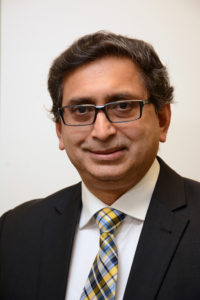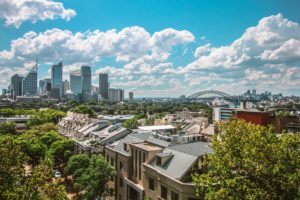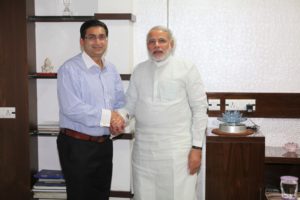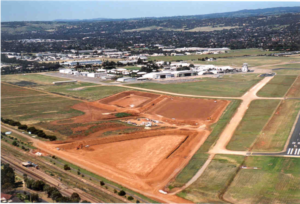Tap into the collective power of influential business and NGO pioneers to create new strategies and
tactics to build a more socially and environmentally conscious world.

Tap into the collective power of influential business and NGO pioneers to create new strategies and
tactics to build a more socially and environmentally conscious world.
Hemant Chaudhary
Company/NGO Name:
Circular Economy Alliance Australia
Region, Country:
Australia

 1. What is the mission of your company/NGO?
1. What is the mission of your company/NGO?
The overarching mission of Circular Economy Alliance Australia (CEAA) is to provide leadership and build capacity in Circular Economy. CEAA has created a platform to bring together leading global experts, leaders and decision makers from government, industry, corporates, university, consulting and training organizations.
2. What is the most innovative or environmentally/socially impactful project/practice your company/NGO has implemented?
CEAA delivers a ‘Global Leadership Program in Circular Economy’ in collaboration with the United Nations Centre for Regional Development, South Australian Government, and Industry. This pioneering, in-residence program is designed for leaders and executives around the world and provides a blended learning experience through expert presentations, site visits and active engagements with practitioners and experts.
3. How have those projects positively impacted the local community and/ or your country?
South Australia is seen as a global leader in Circular Economy and CEAA plays an active role in promoting South Australia’s expertise on a global platform. More than 80% of the waste generated in the South Australia is diverted from landfill; 53% of South Australia’s energy comes from renewable sources; 32% of wastewater generated in South Australia is recycled and nearly 6 GL of stormwater is harvested per year for reuse. Adoption of Circular Economy has created thousands of jobs in South Australia and generated billions of dollars in economic benefits.
4. Please share any new projects you will be implementing in the near future.
In 2018/2019, the Global Leadership Training Program will be further expanded and rolled out to the Asia-Pacific countries. CEAA is in the process of strategic linkages with key organizations around the world in order to spread the reach of the program and co-brand it.

Hemant with India’s Prime Minister Mr. Narendra Modi
5. What are your top 3 career accomplishments?
In 1992, I introduced one of the world’s first Cleaner Production Program in South Australia that involved working with 48 diverse industries. The program delivered a 33 times multiplier benefits for every dollar spent and ushered a proactive, comprehensive, preventative and holistic approach amongst the industry and regulators towards environment protection. From 1996 to 1998, I worked as a Life-cycle Advisor for one of the Australia’s largest mining development at Roxby Downs. I worked with a dedicated team of 200 engineers, planners and scientists to introduce a Life-cycle program that achieved an annual saving of $30 million through energy efficiency, waste reduction and water conservation.
In 2002, I delivered Australia’s largest urban stormwater harvesting and reuse scheme that provides 2.5 GL of high-quality treated stormwater for industrial and irrigation use. I was nominated to United Nations Experts Panel in 2012. I developed a comprehensive, ‘20 Year Zero Waste Roadmap’ for Ahmedabad, one of India’s largest and fastest growing metropolis.
6. What inspired you to choose your career path?
I was one of the early post-graduates’ in the area of environmental engineering in India. Environmental engineering was a relatively unknown field in the 80’s. The three people who heavily inspired me were Dr. David Suzuki, Mahatma Gandhi and Albert Schumacher.
7. Personally—Why do you care about sustainability? What is your story?
I have always firmly believed that spirituality is our true essence and the only way we can understand it is by allowing a sustainability ethic in to govern our conduct in all aspects of life.
8. What is/are the biggest incentive(s) for businesses in your country to adopt sustainable practices?
In my view, if businesses in Australia have to survive and thrive in today’s global competitive environment, they have no option but to embrace sustainability practices.
9. What is/are the biggest environmental or social challenge(s) facing your country today?
a) Climate Change Impact.
b) Water Security.
c) Energy Security and Prices.
d) High waste generation.
 10. What is the most positive action your country has taken to positively impact its environment or social well-being?
10. What is the most positive action your country has taken to positively impact its environment or social well-being?
In the 90’s, Australia introduced major changes in the policy and governance structure at the National, State and Local level focusing on environmental protection, sustainability and resource efficiency. Clean environment became a high priority for the community and was seen as equally important contributor to the quality of life as health care, safety, and employment.
Bonus Questions:
1. What are your thoughts on climate change? What is your company/organization doing to help bring awareness or to help mitigate climate change?
I believe that climate change is real and happening. There is now irrefutable evidence,
research, and data supporting this.
2. What are the biggest challenges you have faced when pursuing or trying to promote sustainable practices/projects?
Attitudinal and institutional barriers have posed significant challenges in pursuing sustainability projects. In addition, wrong policies and poor governance have created significant barriers in pursuing sustainability.
Social Media: